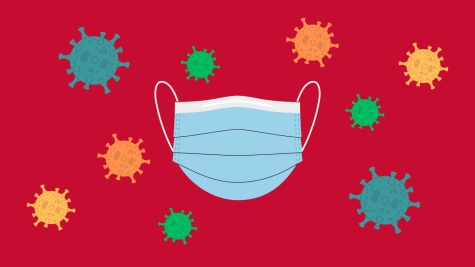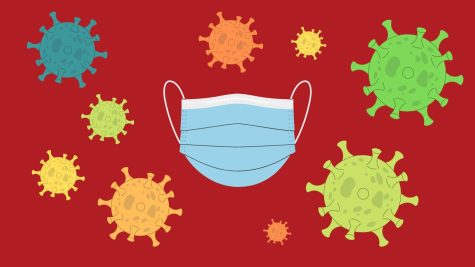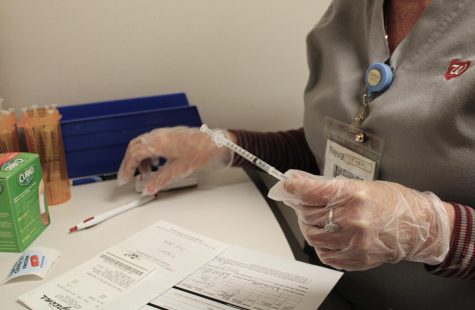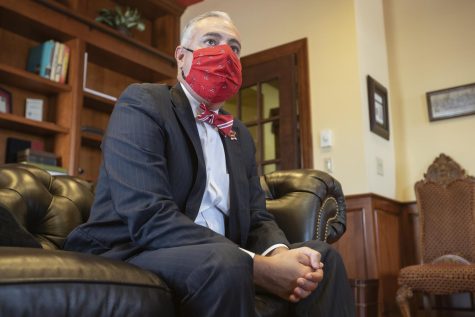Faculty raise concerns with WKU’s plans for COVID-19 response
July 30, 2020
Faculty members are raising multiple concerns about WKU’s current plan for dealing with COVID-19 in an open email to top administrators from the WKU chapter of the American Association of University Professors.
The AAUP stated that the lack of required testing for WKU students, faculty and staff once they arrive on campus is problematic because the university would not be able to detect all asymptomatic positive cases of COVID-19. The AAUP cited a study in which COVID-19 outbreaks in a simulation were more likely to appear when a university only tested people who were showing symptoms of the virus.
Margaret Crowder, the president of WKU’s AAUP chapter, said in an email that the university could be in danger of having an outbreak of COVID-19 if it does not discover asymptomatic positive cases of the active virus.
“Testing is important, as asymptomatic individuals may not know they have come in contact with someone with the virus, or know that they were at risk for contracting the virus, and therefore may never end up being tested under the current listed guidelines,” Crowder said.
Crowder said that if WKU does discover positive cases of COVID-19 on campus, the university should be reporting the number of positive cases to the campus community. The AAUP statement noted that the University of Washington is reporting positive COVID-19 cases on their campuses to the public.
“We shouldn’t need to read it in the media that WKU has had students, staff, or faculty test positive,” Crowder said. “There should be a clear dissemination process for regular campus-wide release of such information.”
If a student is unable to pay for a COVID-19 test because they do not have health insurance, the AAUP stated that WKU should provide that student with financial assistance because the student might test positive for COVID-19.
In WKU’s current contract tracing plan, students are required to self-quarantine for 14 days if they are contacted by a local public health official. The AAUP stated that WKU should explain to students, faculty and staff how contact tracing and quarantining will be carried out on campus.
“WKU’s current policy is not clear on how extensive contact tracing and isolation will be,” the AAUP wrote. “Will the university or contact tracers contact the instructors and classmates of students diagnosed with COVID-19? What will the response to this be? Will the affected classes be shifted online? Will all students and instructors be tested and go into isolation?”
Crowder said that in order for WKU to ensure that students, faculty and staff will not get penalized if they are sick or need to be quarantined, the university will need to provide more information about their quarantine plan.
“It may be that some of these procedures do exist in more detailed form, but it has not been released publicly,” Crowder said. “We’d like more transparency if these procedures already exist, and more work to develop them if they do not–so as much to ensure as much is being done as possible to protect the safety and well-being of the entire campus and surrounding community.
“While we understand that there are budgetary considerations for many of these conversations, we’re in favor of prioritizing campus safety for all of us.”




















